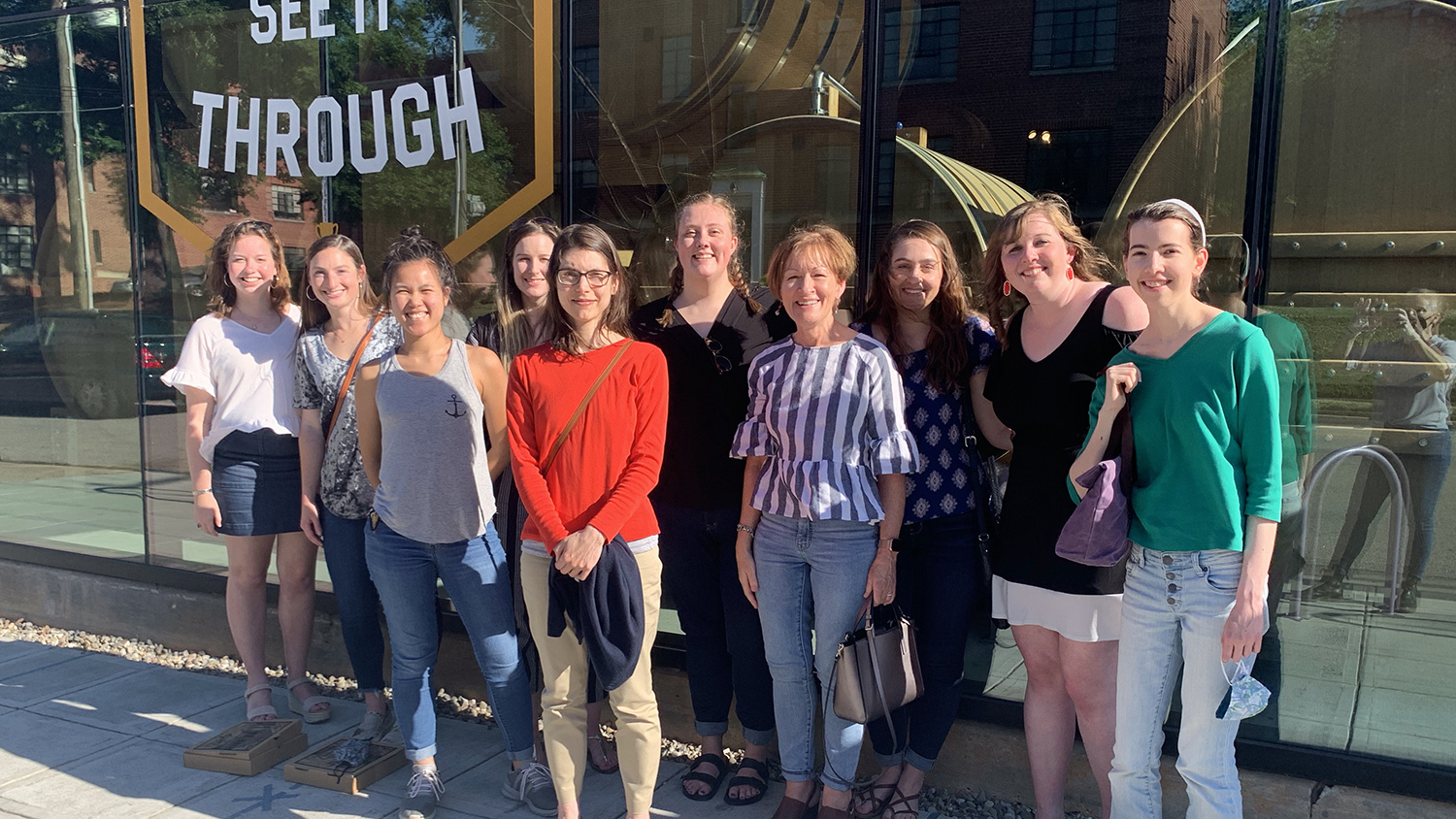Building Community Through Technology During COVID-19

Like the rest of her colleagues at the NC State Poole College of Management, Bonnie Hancock has navigated an ever-shifting landscape of virtual and hybrid instruction over the past year. At one point, she was manning a classroom where half of the class was sitting in front of her and the other half was joining on Zoom. “In 15 years at NC State, I never envisioned that kind of setup,” she reflects. “It was a steep learning curve, to say the least.”
Fortunately, she has discovered a few silver linings along the journey. By leveraging new technologies and exchanging best practices, Hancock is emerging from the COVID-19 pandemic with a more holistic, collaborative approach to her role as a Professor of Practice.
A New Virtual Space
When all her classes went virtual in the spring of 2020, Hancock recognized that learning outcomes would suffer if she did things as they had always been done. “It’s so much more difficult to gauge if you’re connecting with students without any in-person, informal interactions,” she recognizes. “I try to get on Zoom early and stay late in case anyone has questions, but it’s not the same as having a line of three or four students in front of my desk after class.”
In an effort to ensure that no student falls behind, Hancock requires that those taking courses online meet synchronously for an hour every week. “I’ve gotten a lot of positive feedback about these sessions,” she affirms. “Throughout the pandemic, I’ve been overwhelmed by how patient and helpful my students have been as everyone navigated new technologies and course structures.”
In many ways, being forced to incorporate new technology into her teaching practice has improved the quality of learning. Hancock recognized early on that students benefit from having content videos recorded to watch at their own pace. In the future, she plans to continue using the videos she has recorded for out-of-class instruction or as extra review in order to make the best use of class time with discussion, case studies and other interactive work.

As Hancock has grown comfortable with using Zoom, particularly the white board and polling features, she has also turned to other learning platforms for ideas. For example, she has become newly proficient at using Flipgrid, a video discussion platform, to give students a venue to debate news articles and post reaction videos instead of typing a comment.
Another learning platform, Moodle, has significantly changed the way she approaches online testing. In addition to giving more specific, detailed feedback to students on right and wrong answers, the platform provides the tools for instructors to track metrics like which questions students missed most often. “Moodle gives me a tremendous amount of feedback about what I need to emphasize more in terms of content,” says Hancock.
All In This Together
From Hancock’s perspective, mastering new technologies is only half the battle in overcoming the obstacles presented by a global pandemic. The other half is staying in close communication with colleagues and students to shares ideas and offer feedback. She credits NC State with creating a forum for faculty members to exchange instructional design resources. Hancock shared her experience in using Flipgrid and heard from colleagues about how to use grading rubrics on Moodle and give students the option to answer questions by video instead of in writing.
The opportunity to connect with these talented young women has been one of the most rewarding elements of the past year.
Hancock also points to the value of the mentoring program created by the Jenkins Master of Accounting (MAC) program to give students extra support, especially as they battle isolation. Last year, she agreed to mentor a group of 12 female students and used Zoom “coffee chats” to interact with those students and give them an opportunity to connect with each other. Hancock provided her students with a space to discuss the issues that weighed most heavily on their minds, from incorporating strategies to decompress after a long day to approaching virtual recruiting events and interviews. “The opportunity to connect with these talented young women has been one of the most rewarding elements of the past year,” she affirms.
Nothing about the past year of quarantine and isolation has been ideal, but expanding her technological repertoire and discovering new methods of communication has made Hancock a more adaptive, creative educator. If she could go back and offer a piece advice to her March 2020 self, she knows exactly what she would say: “It’s going to be better than you think. Cut yourself some slack and enjoy the process.”
- Categories:


